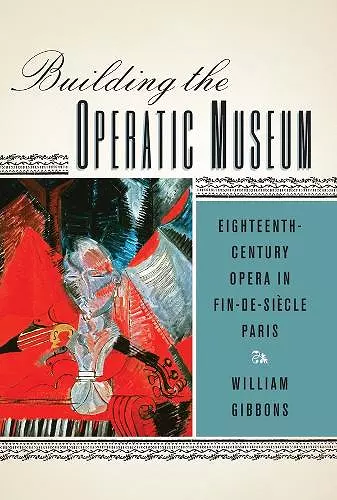Building the Operatic Museum
Eighteenth-Century Opera in Fin-de-Siècle Paris
Format:Hardback
Publisher:Boydell & Brewer Ltd
Published:30th Jun '13
Currently unavailable, and unfortunately no date known when it will be back

The pathbreaking revival in Paris ca. 1900 of long-neglected operas by Mozart, Gluck, and Rameau -- and what this meant to French audiences, critics, and composers. Focusing on the operas of Mozart, Gluck, and Rameau, Building the Operatic Museum examines the role that eighteenth-century works played in the opera houses of Paris around the turn of the twentieth century. These works, mostly neglected during the nineteenth century, became the main exhibits in what William Gibbons calls the Operatic Museum -- a physical and conceptual space in which great masterworks from the past and present could, like works ofvisual art in the Louvre, entertain audiences while educating them in their own history and national identity. Drawing on the fields of musicology, museum studies, art history, and literature, Gibbons explores how this "museum" transformed Parisian musical theater into a place of cultural memory, dedicated to the display of French musical greatness. William Gibbons is Associate Professor of Musicology at Texas Christian University.
Gibbons synthesizes much recent literature on such topics as French musical nationalism and the reception of early music in the nineteenth century, and analyzes these cultural trends in a manner that is [extensively] documented, rich in insight, clear, and highly readable. The book is a model of skillful argument and of expertise in organizing a subject that could easily overflow; a lesson in history and historiography that succeeds in offering a convincing central thesis (the establishment of an Operatic Museum) without denying the manysidedness of historical reality. * IL SAGGIATORE MUSICAL *
What makes the book particularly worthwhile is its careful contextualization of the major fin-de-siècle revivals of eighteenth-century operas including abundant selections from critical discourse. . . . One of the merits of Gibbons' book is the way it enables us to see how these dilemmas [of historical fidelity vs. practical viability, and of Germanic traditions vs. French national pride] were understood, and hotly debated, throughout the period in question, paving the way for a conception of the repertoire that is still very much with us. The book's most engrossing section is probably the one devoted to Mozart, for the [Austrian] composer's place within the French operatic pantheon would always entail the most complex negotiations. * NINETEENTH-CENTURY MUSIC REVIEW *
Gibbons's well-written study of the productions of eighteenth-century operas in late nineteenth-century Paris considers broad issues of edition-making, nationalist interpretation, allegorical readings, and value judgment. An important addition to critical reflections on canon building. --Steven Huebner, McGill University * . *
ISBN: 9781580464000
Dimensions: unknown
Weight: 606g
280 pages